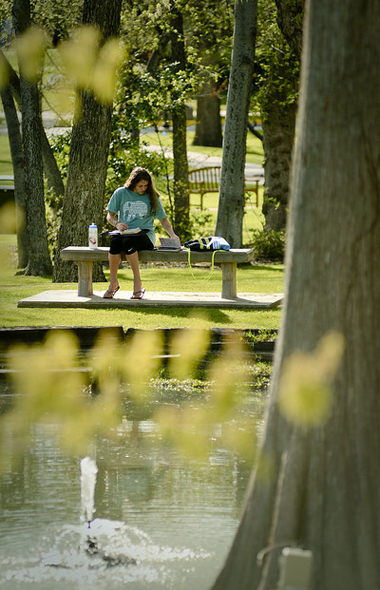Safety and Sustainability
Green Chemistry

Sustainability and "going green" are top priorities in nearly every sector worldwide, particularly within the scientific community. As chemists, we have a responsibility to ensure that our work is both sustainable and environmentally friendly. The American Chemical Society aims to become completely sustainable within the next 150 years. Through the application of the twelve principles of green chemistry, a practical outline fo environmental accountability within our field, we believe this goal is not only attainable, but necessary.
At Texas Woman’s University, we strive to make the dream of sustainable green chemistry a reality, beginning with our classrooms and laboratories. Join us as we usher in the "green" age of chemistry through sustainable practices, environmentally-friendly experiments and improved waste disposal. To learn more about green chemistry, visit beyondbenign.org or the Environmental Protection Agency’s green chemistry website.
Page last updated 8:58 PM, August 28, 2021